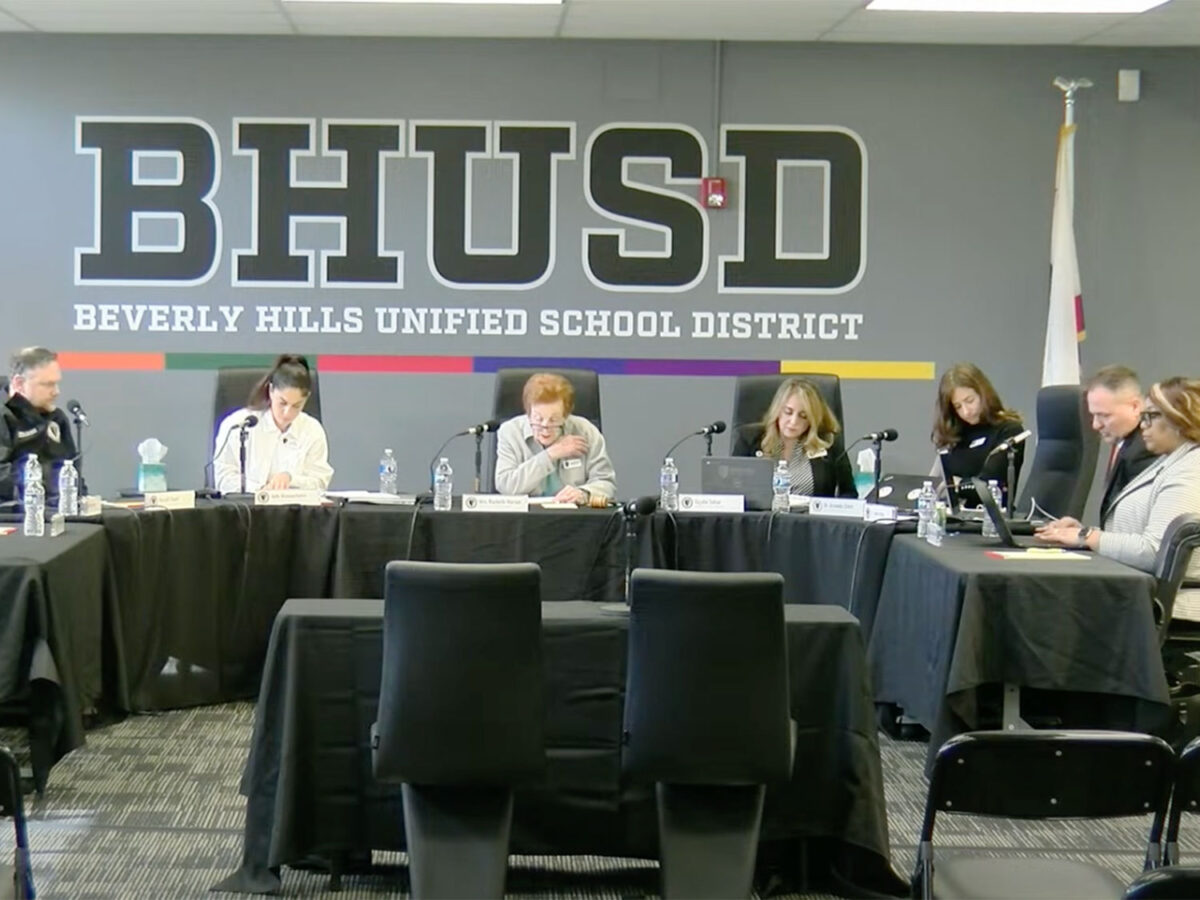Following a detailed discussion at a Feb. 5 Special Study Session about the timing of municipal elections and the election of the mayor and vice mayor, the Beverly Hills City Council agreed, among other things, to split the vice mayorship between two councilmembers for the upcoming 2025-2026 term.
This proposal was initiated by Councilmember John Mirisch and agreed to by Councilmember Craig Corman, who will each serve six months in the position. The decision to split the vice mayorship came as the council attempted to grapple with the ramifications of one local measure and two state measures enacted in the past decade.
SB 415 and SB 970, passed in 2015 and 2020, respectively, have altered the schedule of local elections. In non-presidential election years, elections are held in June for three city councilmembers. In presidential election years, elections are held in March for two city councilmembers. The mayoral position rotates in sequence, based on date of election and number of votes garnered by each councilmember. The mayor and vice mayor are installed in April of each year, regardless of when the municipal election takes place.
Adding an additional wrinkle is the fact that Beverly Hills voters approved Measure TL in 2022. That ordinance on its face imposes a limit of three terms of four years each for councilmembers.
As discussed at the Study Session, the foregoing presents several complicated issues for the city.
Due to the state laws and current city practices, it is possible for the councilmember with the third highest number of votes to be elected mayor in April of the last year of their term, then cease to hold office in July of the same year because he or she is not reelected, terms out or decides not to run for office.
In such a case, that individual would hold the office of mayor for just three months. The council considered on Feb. 5 whether that would be an acceptable scenario, and if so, whether it would be similarly acceptable for another member of the council to move into the position of mayor for the remaining nine months of the term.
The council appointed in September 2024 an Elections Ad Hoc Committee comprised of Corman and Councilmember Mary Wells to review these and other concerns, including whether the mayor should continue to serve a one-year term, and whether a councilmember should serve as vice mayor if he or she is not able to then serve as mayor due to term limitations or losing reelection.
Corman and Wells delivered synopses of their opinions at the Feb. 5 meeting. In an unusual turn of events, they had come to an agreement about a proposal for the full council during their ad hoc committee meeting, but Corman later changed his mind.
On Feb. 5, Corman said he supported moving the mayoral installation to July.
Wells echoed the sentiment that the situation is difficult, and that many of the options they explored led to more complications. Although Wells and Corman expressed views that concurred in part and diverged in others, the council reached consensus on the mayor continuing to serve a one-year term and on splitting the vice mayorship for this upcoming term.
Since no other agreements were reached, the council will, for now, maintain the status quo with installations in April for mayor and vice mayor, and elections in either March or June, depending on the presidential election. They agreed to continue discussions around the issue.
The council spent a great deal of time discussing whether the individual with the third-highest number of votes in an election should be skipped in the rotation. No consensus was reached on that issue.
However, the decision regarding the upcoming vice mayoral appointment was time-sensitive. Mirisch, who is in line for that office, will not be able to serve as mayor the following year due to term limits. Without having agreed on whether a councilmember can serve as vice mayor if they can’t serve as mayor, a short-term decision needed to be made by the council.
“I would be next in rotation,” said Mirisch. “I feel that this is in some way, even though you’re trying to make it not personal, it is. That said, I would be willing to entertain a suggestion, if everyone would, where, if [Corman] feels it’s appropriate, because he would be the next in line, to split the term as vice mayor so we’d both have a chance” to serve.
Vice Mayor Sharona Nazarian lodged concerns about the logistics of Mirisch’s proposal.
“How is this going to work as far as staff is concerned, in all of our logistics, in our paperwork, in our positions?” she said. “For example, our charitable foundation has the vice mayor serving as the chairperson, and so what are we going to do? Keep switching off in the middle?”
Corman said the suggestion was not ideal but agreed, noting that it would buy the council more time to deliberate.
“I’ll do whatever the council wants to do to move this along,” he said. “We can say, for this one-off, we can reach some arrangement and take some more time to study how we want to go about this in the future.”
Beverly Hills City Manager Nancy Hunt-Coffey said she believed staff could make the proposal work.
“I think we’re clear enough at this point,” she said, “where we can move forward in the immediate term.”







